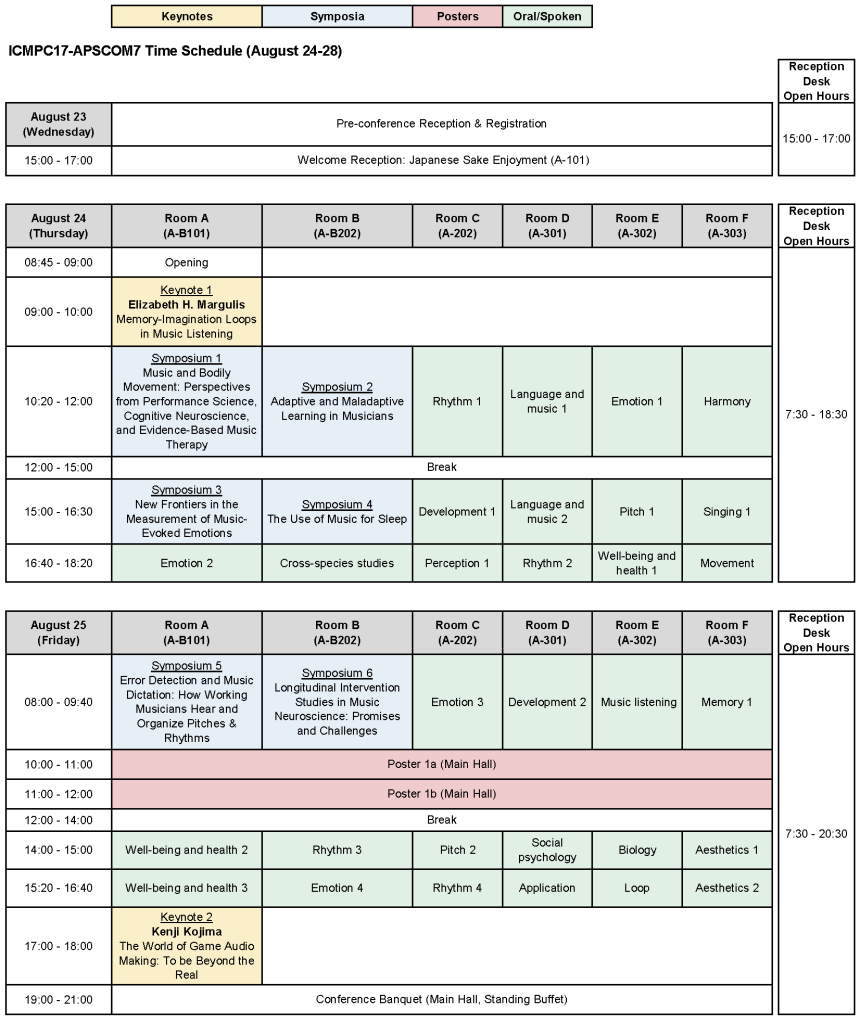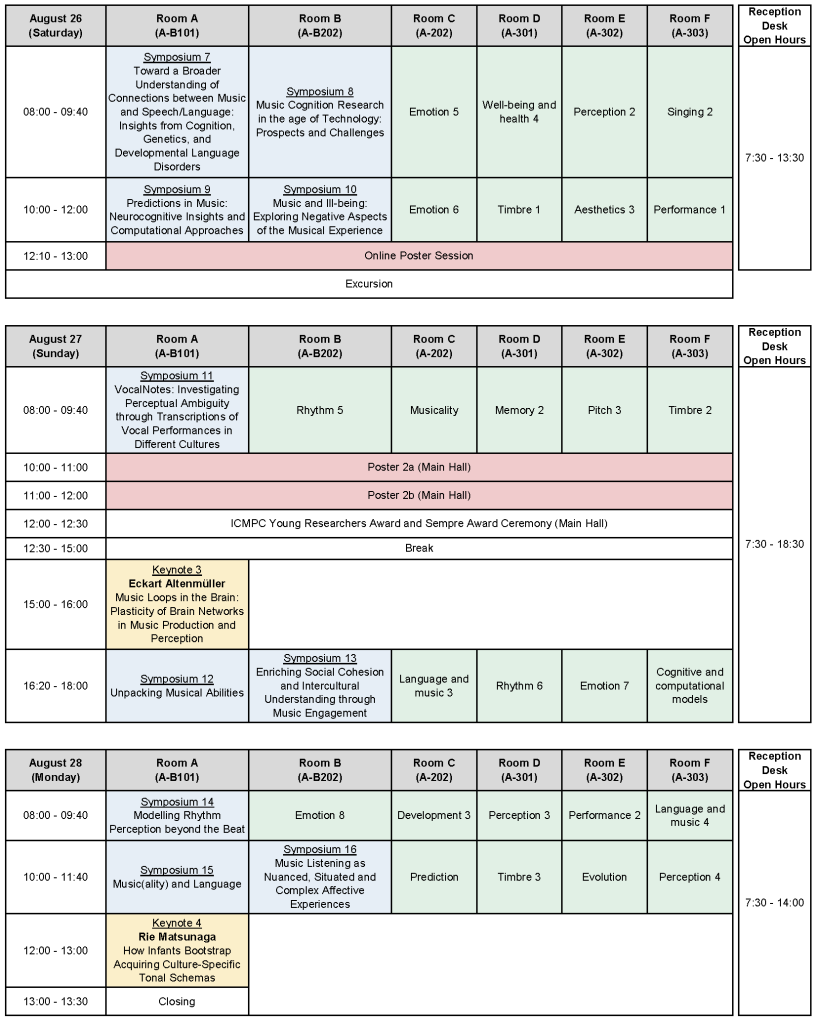We have released the final version of ICMPC17-APSCOM7 program. The date of release is August 8, 2023. The changes made in the program after the date are listed here.
– Conference Overview (PDF)
– List of Presentations (PDF)
– Session Chairs (Updated on August 18)
– Award Winners (PDF, Updated on September 8)
– List of Social Events, Concerts, and Attractions (PDF)


 Elizabeth Hellmuth Margulis is Professor and Director of the Music Cognition Lab at Princeton
University. She is the author of On Repeat: How Music Plays the Mind,
which won the Wallace Berry Award from the Society for Music Theory and
the ASCAP Deems Taylor/Virgil Thomson Award, and The Psychology of
Music: A Very Short Introduction, which has been translated into six
languages.
Elizabeth Hellmuth Margulis is Professor and Director of the Music Cognition Lab at Princeton
University. She is the author of On Repeat: How Music Plays the Mind,
which won the Wallace Berry Award from the Society for Music Theory and
the ASCAP Deems Taylor/Virgil Thomson Award, and The Psychology of
Music: A Very Short Introduction, which has been translated into six
languages. Kenji Kojima is an esteemed game audio programmer at Capcom, where he helps lead the
sound program team. He studied music engineering at Osaka University of
Arts, where he focused on auditory perception from the perspective
of experimental psychology, and later researched sound at Doshisha
University.
Kenji Kojima is an esteemed game audio programmer at Capcom, where he helps lead the
sound program team. He studied music engineering at Osaka University of
Arts, where he focused on auditory perception from the perspective
of experimental psychology, and later researched sound at Doshisha
University. Eckart Altenmüller (b.
1955) holds a Masters degree in Classical flute, and a MD and
PhD degree in Neurology. Since 1994 he is chair and director of the
Institute of Music Physiology and Musicians’ Medicine at the HMTM
Hannover. He continues research into motor, auditory and sensory
learning and emotions and directs an outpatient clinic for musicians.
Eckart Altenmüller (b.
1955) holds a Masters degree in Classical flute, and a MD and
PhD degree in Neurology. Since 1994 he is chair and director of the
Institute of Music Physiology and Musicians’ Medicine at the HMTM
Hannover. He continues research into motor, auditory and sensory
learning and emotions and directs an outpatient clinic for musicians. Rie Matsunaga is
an Associate Professor of Cognitive Science in the Department of
Psychology at Kanagawa University. Her research has centered on
processing mechanisms of melody perception, in particular
tonality perception – i.e., how listeners perceive a sense of tonality
for a given tone sequence. She and her colleagues pursue this issue from
both cross-cultural and developmental viewpoints, using behavioral,
neuroimaging, and computational approaches. Her current focus is the
acquisition process of culture-specific tonality schemas.
Rie Matsunaga is
an Associate Professor of Cognitive Science in the Department of
Psychology at Kanagawa University. Her research has centered on
processing mechanisms of melody perception, in particular
tonality perception – i.e., how listeners perceive a sense of tonality
for a given tone sequence. She and her colleagues pursue this issue from
both cross-cultural and developmental viewpoints, using behavioral,
neuroimaging, and computational approaches. Her current focus is the
acquisition process of culture-specific tonality schemas.